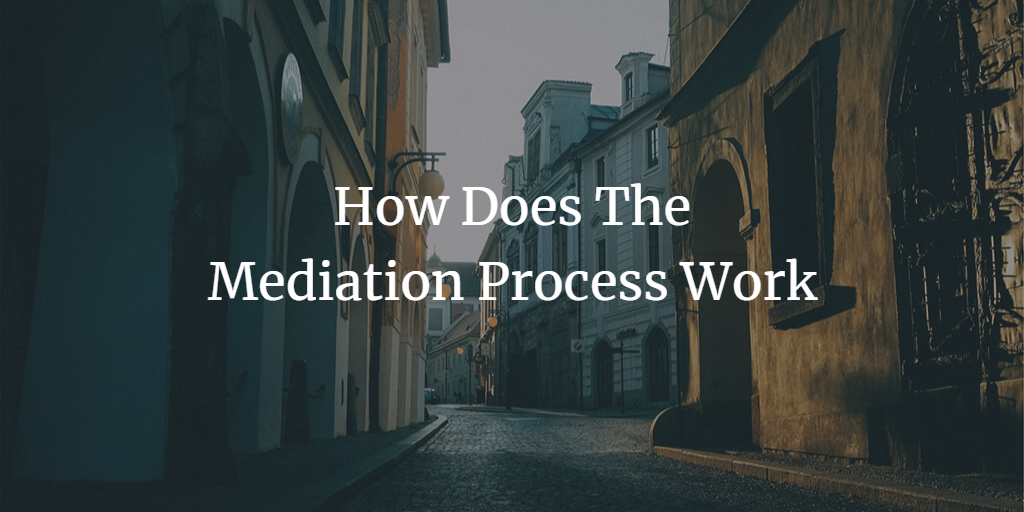How Does The Mediation Process Work – Steps and Procedure

Table of Contents
Introduction to Mediation
The Mediation Process: Step by Step
Preparation
Opening Session
Joint Session
Private Sessions (Caucus)
Negotiation and Problem-Solving
Agreement and Closure
Benefits of Mediation
Conclusion
Introduction to Mediation
Mediation is an alternative dispute resolution process that enables disputing parties to voluntarily and confidentially resolve their conflicts with the assistance of a neutral third party called a mediator. It is a flexible approach commonly employed in various settings, including family, workplace, and commercial disputes, aiming to facilitate the creation of mutually acceptable agreements between the parties involved.
The Mediation Process: Step by Step
The mediation process consists of several sequential stages, each intended to foster effective communication, comprehension, and negotiation among the parties involved. These steps encompass:
1. Preparation
The first stage of the mediation process is preparation. In this phase, the mediator gathers pertinent information regarding the dispute. This may involve reviewing relevant documents, conducting individual meetings with each party, and identifying the key issues that need to be addressed during the mediation session.
2. Opening Session
The second stage of the mediation process is the opening session. In this phase, the mediator initiates the mediation by introducing themselves and clarifying their role. They also establish the ground rules that will govern the session. Emphasis is placed on the significance of confidentiality and the voluntary nature of the mediation process.
3. Joint Session
The third stage of the mediation process is the joint session. In this stage, each party is given an uninterrupted opportunity to express their perspective on the dispute. This phase allows the parties to openly share their emotions, concerns, and viewpoints. The mediator plays a crucial role in fostering a respectful and constructive atmosphere, ensuring effective communication between the parties.
4. Private Sessions (Caucus)
Following the joint session, the mediation process may involve private sessions, often referred to as caucuses, conducted by the mediator with each party individually. In these confidential meetings, the mediator has the opportunity to delve into the parties' respective interests, explore potential solutions, and engage in discussions regarding potential concessions or compromises. These private sessions enable the mediator to facilitate a deeper understanding of the parties' needs and facilitate progress towards a mutually beneficial resolution.
5. Negotiation and Problem-Solving
Once the mediator has gained a comprehensive understanding of the parties' needs and priorities, the fifth stage of the mediation process involves facilitating negotiation and problem-solving discussions. The mediator's role is to assist the parties in finding common ground and exploring potential solutions that address their interests. The ultimate objective is to reach a mutually acceptable resolution that satisfies the needs and concerns of all parties involved.
6. Agreement and Closure
The final stage of the mediation process is the agreement and closure phase. In the event that the parties involved reach a mutually acceptable agreement, the mediator assists them in creating a written document that outlines the terms of the agreement. This document, when signed by the parties, may hold legal validity and become a binding agreement. However, if an agreement is not reached, the parties retain the option to explore alternative dispute resolution methods, such as arbitration or litigation, to resolve their dispute.
Benefits of Mediation
Mediation provides numerous benefits compared to traditional litigation, including:
Cost-effectiveness: Mediation tends to be more cost-effective than going to court since it avoids high legal fees and lengthy trials.
Time-efficiency: The mediation process is typically faster than litigation, enabling parties to resolve their disputes and move forward more promptly.
Confidentiality: Mediation sessions are confidential, ensuring that the information shared remains private. This safeguards the parties' reputations and protects sensitive information from public disclosure.
Empowerment and Control: In mediation, the disputing parties actively participate in crafting the resolution, giving them greater control over the outcome. This empowerment fosters a sense of ownership and promotes more satisfactory results.
Preservation of Relationships: Mediation emphasizes constructive communication and problem-solving, which can help preserve or even improve relationships between the parties. Unlike adversarial litigation, mediation focuses on collaboration and finding mutually agreeable solutions.
Flexibility: Mediation is a flexible process that can be customized to accommodate the specific needs and circumstances of the parties involved. This adaptability allows for creative problem-solving and tailoring the resolution to meet everyone's interests.
Mediation offers a range of advantages over traditional litigation, including cost-effectiveness, time-efficiency, confidentiality, empowerment, relationship preservation, and flexibility. By opting for mediation, parties can engage in a constructive and collaborative process that leads to mutually satisfactory resolutions.
Conclusion
In conclusion, mediation provides a highly effective alternative to traditional litigation, presenting a more adaptable, cost-effective, and collaborative approach to resolving disputes. By comprehending the sequential stages and procedures involved in the mediation process, parties can make well-informed decisions about whether this method suits their specific situation. Mediation often facilitates the achievement of mutually satisfactory agreements, preserves relationships, and fosters a positive and constructive resolution for all parties involved.


